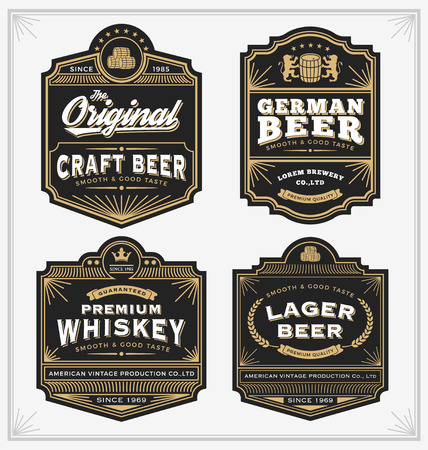Overview
In light of continued growth in the wine and brewing industries, a business owner working hard to succeed is wise to protect what may become its most valuable assets – the company name and brand. Much thought, time, and money is often spent to develop a creative marketing plan including marks and logos that will stand out among the ever-growing competition. These marks often promote new businesses and products where common law protections may be limited. Federal registration of the name or stylized logo is important to protect these valuable assets. Investing in this protection at the outset is more cost effective and increases the chance of retaining the right use of the mark in the event of a dispute.
 A notable increase in litigation has occurred in this community-based industry where product names often evoke common images, make use of regional themes or landmarks, or include similar puns. It is not surprising that strikingly similar names may be used, even unintentionally.
A notable increase in litigation has occurred in this community-based industry where product names often evoke common images, make use of regional themes or landmarks, or include similar puns. It is not surprising that strikingly similar names may be used, even unintentionally.
Recent disputes include:
- Companies both using the term “Narwhal,” where the party claiming to have first used the name relented to a subsequent USPTO registrant by changing its company name to remove the term.
- An Indiana lawsuit settled for use of similar images of a yeti, one using the image for a single product and the other for the company name and logo, the latter which continues to use the image and name.
- Bootlegger's Brewery, a California craft-beer maker settled with a rival selling hard root beer as Bayou Bootlegger claiming the different products were similar enough to cause consumer confusion because they were shelved together.
- In Florida, a dispute centered on rivals both using hurricane and storm category ratings to describe their beers.
- An ongoing dispute in St. Louis involves two companies using only somewhat similar light bulb logos, but for identical products in the same market.
Without federal registration, any common law protection of a mark is limited to the territory in which it is used; therefore, failing to federally register a mark could limit growth of a regionally successful product into other areas of the country where a similar mark is already in use. Registration also allows the owner to use the ® registration symbol, signifying ownership of that mark to the public and stability in a changing market.
Success in the beverage industry based upon hard work and a creative business and product brands can be enhanced by registering one’s trademarks before those marks and the products they represent become popular.
